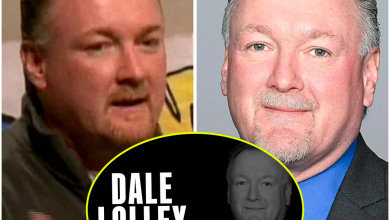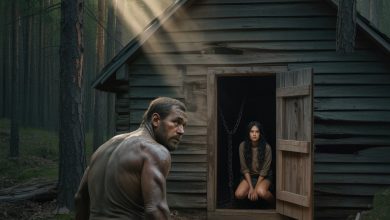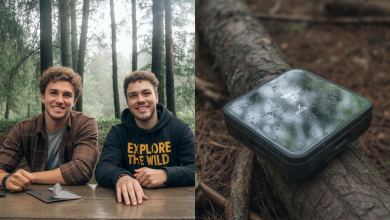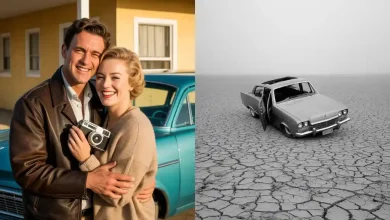Dragged Out by My Hair: The Story of a Family Betrayal and a Grandfather’s Secret Plan for Justice
The day I lost everything began with a summons to the dining room. I should have known something was wrong by the way our butler, Peterson, avoided my eyes. In the grand, mahogany-paneled room, my parents, Rebecca and William, sat at the head of the table like monarchs presiding over an execution. My older sister, Claire, was beside them, a picture of rehearsed sorrow. Their lawyer, Gregory Phillips, was there too, along with a man I didn't recognize. I was commanded to sit.
What followed was a swift and brutal ambush. They presented forged documents—a fraudulent medical report questioning my grandfather's sanity, a faked letter expressing his "concerns" about my manipulation. They announced that a judge had granted them temporary control of all assets from the will my grandfather had left me. And then came the final, devastating blow: I was to pack my things and leave the house immediately. My home. The home my grandfather had legally left to me.
When I stormed upstairs, my mind reeling, my father followed. An argument over my belongings, my personal, sentimental items, escalated in a horrifying instant. He didn't grab my suitcase; he grabbed a fistful of my hair. The pain was sharp, searing. He dragged me from my room, my scalp burning, his grip like iron. Down the grand staircase we went, my body bumping against the marble steps, past a stunned household staff and my sister, who simply watched. With a final, violent shove, he pushed me out onto the rain-soaked driveway and threw my suitcase after me, its contents spilling onto the wet pavement.
“You are no longer welcome in this house,” he declared, straightening his tie. The massive oak door slammed shut, leaving me alone in the pouring rain. In a single morning, I had gone from a 25-year-old heiress to a homeless, penniless outcast, physically assaulted and betrayed by the very people who were supposed to love me most. They believed they had won. But they had no idea that the real fight was just beginning.
Growing up a Montgomery in our sprawling Connecticut estate was to live in a gilded cage of emotional neglect. While my parents curated their high-society image, it was my grandfather, Thomas, who raised me. He was the patriarch who had built our family’s multinational corporation from the ground up, and he was the only one who truly saw me. While my sister, Claire, was showered with praise and expensive gifts, I found my value in my grandfather’s quiet study.
He taught me about life through sailing lessons on his beloved yacht, the Eleanor. “Sometimes you have to tack against the wind to reach your destination,” he’d say, his weathered hands steady on the wheel. Those words would become my mantra. He nurtured my curiosity, taking me to museums and discussing complex business strategies. “You have a mind for this,” he’d say with pride. “One day, you’ll take what I’ve built and make it even greater.”
When he was diagnosed with terminal cancer, I became his caregiver. My parents were too busy; Claire was too disinterested. In those final, precious months, he and I spoke often about the future. “I’ve made arrangements to ensure you’re protected,” he told me, his voice a frail whisper. “Promise me you’ll stay strong, no matter what comes.” The night before he died, he gave me one last, cryptic warning: “If things aren’t as they should be, look for my message. I will always protect you.” I didn't understand then, but those words would become my lifeline.
His will was clear: I was to inherit his controlling interest in the company and the family estate, a fortune valued at over $10 million. The shock in the room was palpable, quickly curdling into a cold, furious resolve. In the weeks that followed, my family began their methodical campaign to undermine me. They gaslighted me, changed security codes, and searched my office, all while their lawyer, Gregory, worked behind the scenes to build a fraudulent case against my grandfather’s mental competence.
After they threw me out, my world collapsed completely. The police report I filed for the assault went nowhere; my father’s name carried too much weight. My bank account dwindled to nothing. My parents used their influence to blacklist me, ensuring every promising job interview I landed mysteriously evaporated. I bounced between budget motels until my money ran out, the shame of my situation a constant, crushing weight. On my last night with a roof over my head, I sat on a sagging motel bed, contemplating a future of sleeping in my car, my last remaining asset.
In a final act of desperation, I emptied my broken suitcase, hoping to find something, anything, left to sell. That’s when I found it: my grandfather’s antique pocket watch. As I held the heavy gold timepiece, remembering his lessons, I noticed a nearly invisible seam on the back. On instinct, I pressed it in a familiar pattern—the combination to his safe. The back popped open, revealing a hidden compartment. Inside was a tiny USB drive and a folded note.
“My dearest Vanessa,” it read. “If you’re reading this, then the worst has happened… This drive contains everything you need.”
For the first time in weeks, hope ignited within me. The drive was a treasure trove, a meticulously curated arsenal my grandfather had prepared for this very war. It held copies of his medical evaluations confirming his competence, recordings of our business discussions, and damning evidence of my family’s past schemes. Most importantly, it contained contact information for Richard Donovan, his oldest friend, and access to a secret "insurance policy"—an offshore account with $2 million he had set aside just for me.
Richard became my guardian, and his home, my sanctuary. He introduced me to Lawrence Schaefer, my grandfather’s former business partner. Together, with my lawyer Benjamin Reynolds, we began to build our counter-attack. The emergency funds allowed me to hire a private investigator who quickly uncovered the truth behind my family’s desperation: my father’s investment firm was on the verge of a $15 million bankruptcy, and Claire had over $300,000 in gambling debts that my parents had paid off with estate money—a clear violation of the probate freeze. They weren't just greedy; they were fighting for their survival.
The day we walked into the courthouse, I was no longer the broken girl who had been thrown into the rain. I was the woman my grandfather had prepared me to be. Benjamin systematically dismantled their case, presenting testimony from my grandfather's real doctors, his loyal secretary, and even household staff who had overheard their plotting. But our trump card was the evidence my grandfather had left himself: a video he recorded before his death.
The courtroom fell silent as his image appeared on the screen, his mind sharp even as his body failed. He methodically outlined his reasons for choosing me, his voice filled with love and conviction. “Vanessa has demonstrated the business acumen, ethical judgment, and genuine care for this company’s legacy,” he stated. “I believe in you.” The video was irrefutable.
The judge’s ruling was swift and severe. The original will was upheld. My parents and their lawyer were referred to the district attorney for potential criminal charges of fraud and forgery.
In the end, they came to me, broken and pleading for a settlement. “What do you want, Vanessa?” my father asked, his arrogance gone. I wanted what was right. I told them to be out of the estate by the end of the month, with nothing but their personal belongings.
Victory felt strangely hollow at first. The battle was won, but the war had left deep scars. Through therapy, I began the long process of healing from the trauma of their betrayal. I eventually met with Claire, who, in a surprising turn, was genuinely remorseful and seeking help for her own issues. While our relationship may never be whole, a path to forgiveness felt possible.
I sold the estate, a place tainted with too many painful memories, and used the funds to establish the Thomas Montgomery Foundation for Ethics in Business, honoring his legacy in a way that would create real change. I refocused the company on his core values of integrity and substance. And I found love with a man who was impressed not by my name, but by my actions.
The inheritance was never just about the money. It was about my grandfather's unshakeable belief in me. He left me the resources to fight, but the real inheritance was the strength I discovered along the way—the strength to stand up for myself, to navigate against the wind, and to finally become the captain of my own life. That is a legacy worth more than any fortune.




